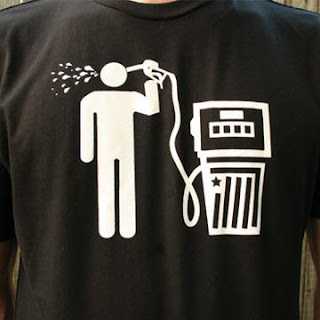The May-June 1968 revolt in France and its influence today (+ videos)
In May and June 1968, a movement erupted in France that threatened not just the survival of the government of President Charles De Gaulle but the system that it represented — capitalism. At the height of this movement, which was sparked by radical action by youth and students, an estimated 10 million workers were on strike and 600,000 students were occupying their schools and universities, and a further 2 million farmers were supporting them. This meant that more than one in five of France’s population were on the
Can carbon trading solve global warming?
Larry Lohmann, the Corner House, UK
By the International Socialist Organisation of Zimbabwe
* * *
June 23, 2008 -- After the publication of the original article (see below), Movement for Democratic Change presidential candidate Morgan Tsvangirai held a press conference at which he issued a statement to the effect that the MDC is pulling out of the presidential run-off election because conditions for a free and fair election do not exist, [due to the] the massive violence against his party and civic society. The press conference followed the disruption of his final rally in Harare by ZANU-PF vigilantes on June 22. Tsvangirai stated that the MDC was to carry out further consultations and would announce the details of the way forward.
We welcome the position taken by the MDC, and initial reports indicate that this position has been accepted by MDC and civic society activists and supporters.
Photo essay: Mexican indigenous front agitates for rights of migrants in the US
Text and photos by David Bacon
SANTIAGO DE JUXTLAHUACA, OAXACA, MEXICO
MAY 31, 2008 -- The assembly of the Indigenous Front of Binational Organisations in the Mixteca region of Oaxaca, one of the poorest areas in Mexico. A large percentage of the indigenous population of Oaxaca and other states has left to work in northern Mexico and in the United States. The FIOB is a political organisation of indigenous communities and migrants, with chapters in Mexico and the US. It advocates for the rights of migrants, and for the right not to migrate -- for economic development which would enable people to stay home.
Howard Zinn: An illustrated people's history of the US empire
Since its landmark publication in 1980, A People’s History of the United States has had six new editions, sold more than 1.7 million copies and been turned into an acclaimed play. More than a successful book, A People’s History triggered a revolution in the way history is told, displacing the official versions with their emphasis on great men in high places to chronicle events as they were lived, from the bottom up.
Malaysia: Fuel heats governmental crisis (+ videos)
June 21, 2008 – The National Front (BN) government led by PM Abdullah Badawi has been shaky since the March general election that returned a much stronger parliamentary opposition — now largely united in a new People’s Front (Pakatan Rakyat).
Bolivia's vice-president on the course of revolution
By Álvaro García Linera, vice-president of Bolivia
Translation, notes and introduction by Richard Fidler
Cuito Cuanavale: How Cuba fought for Africa’s freedom
By Barry Healy
Nicaragua: Anti-FSLN opposition seeks unity to topple Ortega government
By Felipe Stuart Cournoyer
His Excellency Comrade Robert: How Mugabe's ZANU clique rose to power
By Stephen O’Brien
Towards the end of 1975 a movement of young radicals organised in the Zimbabwe People’s Army (ZIPA) took charge of Zimbabwe’s liberation war. ZIPA’s fusion of inclusive politics, transformational vision and military aggression dealt crippling blows to the white supremacist regime of Ian Smith. However, it’s success also paved the way for a faction of conservative nationalists led by Robert Mugabe to wrest control of the liberation movement for themselves.
Nationalise big oil, enemy of the planet and its people
By Dick Nichols
June 17, 2008 -- The latest surge in the spot price of crude oil (to US$139 a barrel—87.4 cents a litre) dramatises the urgent need for society to wean itself off “black gold”. The longer we remain hooked the greater the devastation both to our environment and to the living standards of billions, especially the poorest peoples of the planet.

The challenge is huge. The response must combine defence against the threat to livelihoods from price rises with a plan to restructure economies and ways of living so that oil-intensive production and transport becomes a thing of the past.
